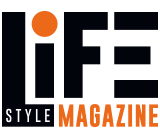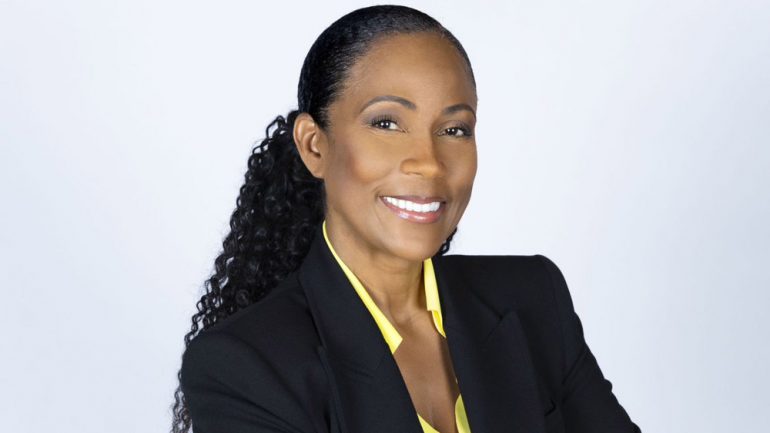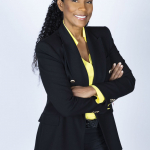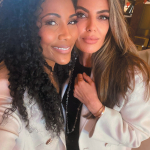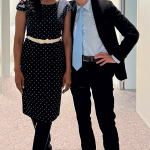Would we be right is saying that what triggered the writing of your book was when your life suddenly changed as you were assigned two bodyguards following death threats that you received?
Who could ever imagine that one day a journalist in France, the country famed for freedom of expression, would need protecting simply because she is doing her job? It was like a wake-up call. I’ve never adopted a specific stance, never said anything against anyone, nobody knows my political opinions but somehow I became an unidentified journalistic object (who gives no opinion), a combatant, a resistant, a symbol… Simply I do my job and apply French law. Freedom of expression is an integral part of French culture and identity, and also our intellectual construction.
Your book, “Libertés sans expression” (Freedom without expression) is a worrying and lucid testimony about the situation surrounding public expression in France. Do you think the current situation you decry will help provoke a shift in mentalities in the years to come?
I don’t claim to be able to bring about a shift in mentalities. I just want to shine a light on my own experience, to arouse interest and awareness. Whenever a person or organisation wants to block something or someone, this raises questions. When someone wants to forbid, suppress or do away with someone because of what he or she says or thinks, this also raises questions. At the CSA, the French Audio-visual Board, my credo was already “convince rather than impose” by fighting against the suppression of advertising for Nutella and trying to convince others that it is eating habits that are more dangerous than the product itself. I came up against a number of politicians who were in favour of removing the advertising because it was easier and more media-friendly. By removing what we don’t want to see anymore, while imagining that what we are doing is the right thing to do, we suppress our own ability to think and decide. It’s time to put an end to all this infantilisation! We need to open out to others, whether we agree or disagree. To discuss and progress together!
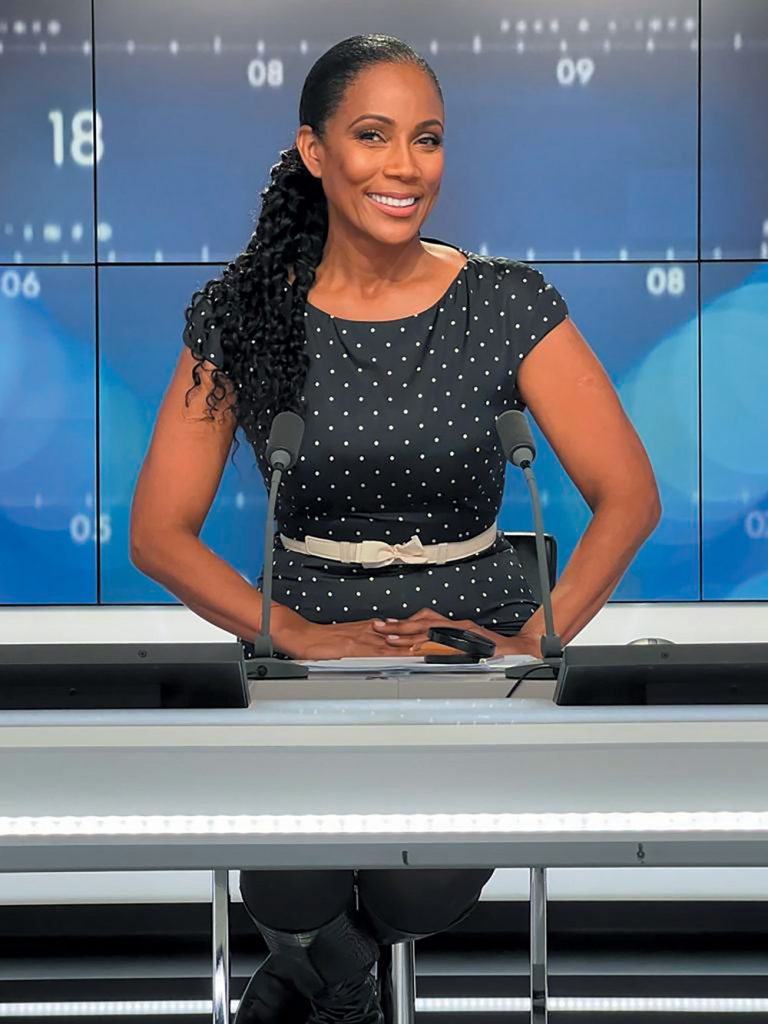
How did you prepare for the new season of CNews following on from the publication of your book? Are you more determined than ever to address crucial, or even sensitive issues and to discuss them as a way of defending a freedom of speech that is so important to you?
The channel is the perfect illustration of freedom and we address whatever issue, no matter how sensitive it may be. For me, returning to CNews is a time for consolidation and introspection. The team and position remain unchanged and we will continue to address the viewers as people who are capable of thinking for themselves and we shall continue to discuss a wide range of topics from the economy to the history of France, foreign affairs and domestic policy. La Belle Histoire de France, our series devoted to the history of France will end this year. We wanted to study the history of France from Gaul to De Gaulle and each chapter is available on cnews.fr
Nothing seems to upset you! How do you manage to remain so calm and relaxed when on air?
That’s the first thing Serge Nedjar said to me when he appointed me for the job: “You are calm”. Gérald-Brice Viret who put my name forward and approved the decision has known me for around 25 years now. He knows all about my personality and also my strengths and weaknesses. Calm is also the first adjective viewers use when we bump into each other. They regularly say they would also like to be like me. However, I’m obviously not always so calm, and sometimes I do have to just grin and bear things. Generally speaking, I do try and incite calmness on the set because I feel less comfortable if there is friction or arguments going on. I want the viewers to be able to hear, understand and analyse. I try and develop a sort of inner peace and calmness on the set. After all, isn’t disagreeing all about agreeing on something else? It’s simply a question of finding it.
What two adjectives best describe who you are?
Altruistic. I have always been concerned by other people’s well-being, like a kind of second nature. I like to help and to give. I don’t like seeing people suffer. I want to hear what they have to say. This helps me in my self-awareness and understanding that as individuals we don’t count for much. If we remain inward-looking we can miss out on meeting amazing people and appreciating wonderful times. We believe the world turns around us whereas in reality the world continues to turn, with or without us.
Determined. I have always been someone who decides, dares and acts. I am true to my word and rarely go back on what I say. This can be a positive point, but also at times a handicap. I do what I can with my strengths and weaknesses to juggle with life circumstances. Obstinate is the dark side of determined.
The adjectives I work on are: “responsible” and “humble” to be 100% responsible in the event of error and humble in the event of success.
What is your assessment of the place of women in the media?
Despite what people say and disregarding all ideological concepts, a woman needs to do more to succeed professionally. This is true for the media and many other sectors of activity and also in society as a whole. There is often a pre-conceived perception of hysteria whenever a woman raises her voice (even justifiably so) and whether consciously or sub-consciously, we always look for the man who enabled the woman to succeed. A woman in the media is usually less well paid than a man. Is seen as less credible and less professional. In the group I chose to work for after my term at the CSA, I took all this into consideration and turned up for work relatively discreetly! Canal Plus pays a great deal of attention to the role of women.
Could writing become your one and only passion? Would you be prepared to drop everything else to focus exclusively on writing?
No. Writing is a passion but not a calling. Writing is an outlet but not mandatory. “Speaking the truth in times of universal deceit is a revolutionary act” is a line I love using and one that clearly explains why I wanted to give my version of the truth, the truth about the laws and the freedom of speech. It’s important to take time out to consider and express one’s ideas. But I couldn’t earn a living from my books. Even if I was paid to write I think I would always look to have a number of other functions. I love having a multitude of tasks to do where one function nurtures another.
What gets you smiling at the start of a new day?
Dawn brings with it hope. The sun rises each morning, after the storm the sun will rise again and with each new day, hope comes. Nature is forever present, forever loyal, the trees smile, the birds sing and we are almost certain to have 24 hours to fill more or less as we please and I believe that having the possibility to do better than the previous day is a blessing. Each morning I wake up thinking I can improve something, however small it may be, and this makes me happy.
You have a little seven-year old daughter. Don’t you find it difficult to balance your life as a mum with your media obligations?
For almost 13 years now I have been working with an association I founded for single-parent families and ever since I met them I refuse to complain. I think about the men and women who have to bring up their children alone. Those who rush around to make ends meet and whose only fuel is the love they have for their children. So yes, sometimes I despair, sometimes I stumble, other times I am exhausted but I never complain, I move on and lead the single-parents on with me.
What would you like to wish LiFE Magazine readers as the year draws to an end?
To quote Sénèque; “Draw your hope from your despair”. Wherever there is danger there is a solution to save you from the danger.
I wish readers of LiFE unlimited life-loving optimism at a time when the world is in a bad state, when fear may overcome, and to transform this fear into strength.
